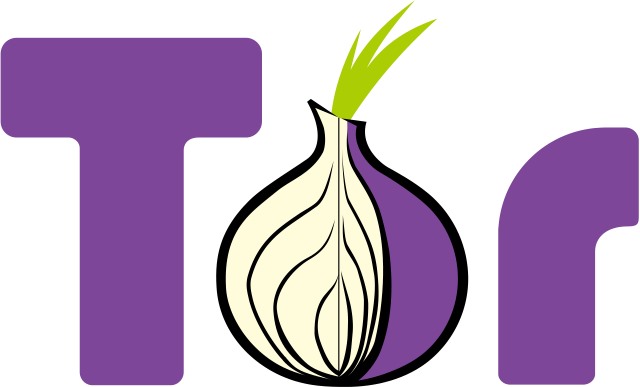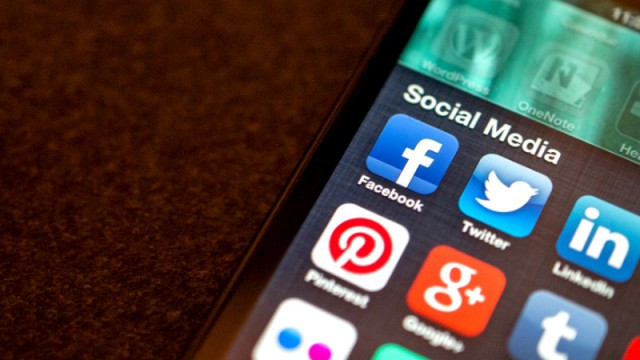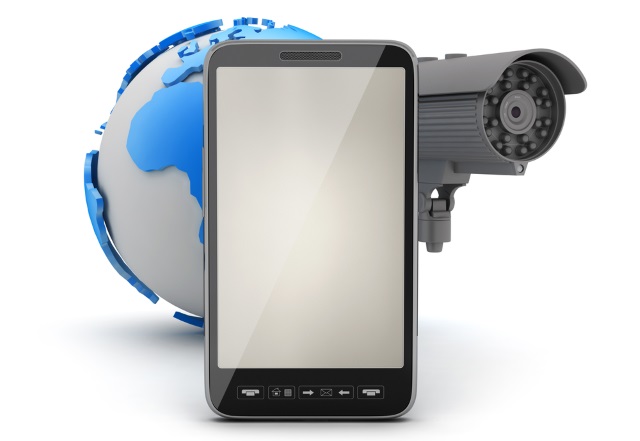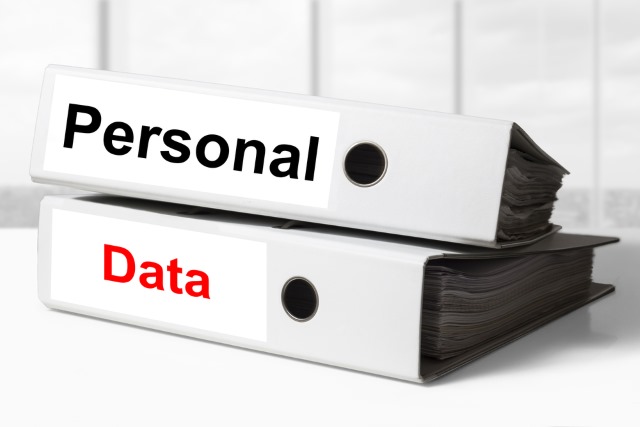
Social networks are simply not important in the workplace
Surveys often reveal facts that are largely common sense, and this is certainly true of a study by the Pew Research Center -- the findings being that is seen as "very important" to workers. Nearly half of the 1,066 people surveyed said internet, email and cell phones made them more productive, while just 7 percent said the opposite was true.
So far, so predictable. But the same study also reveals that just 4 percent of workers feel that social networking sites like Twitter, LinkedIn and Facebook are "very important". These are findings that Facebook would almost certainly disagree with, as would Twitter and LinkedIn, despite reports suggesting that Facebook is valuable to business users.

Lizard Squad attacks Tor network, ignoring warning from Anonymous
Lizard Squad, the group believed to be behind the Christmas DDoS attacks on Xbox Live and PlayStation Network now has a new target -- Tor. Just a week ago, the leader of the Tor Project, Roger Dingledine, warned that the anonymizing network could come under attack, and now it seems as though his prediction was correct.
War has already been declared on Lizard Squad by Anonymous, but this does not seem to have been enough to deter the group from its attacks. Reports suggest that more than 3,000 Tor relays have been compromised, and there are fears that this could impact the anonymity Tor was designed to offer.

Americans are using social media to enhance Chanukkah and Christmas
In the grand scheme of things, America is a very young nation. Still, we Americans have deep-rooted traditions that are carried over from our ancestors of the old-world. This is most apparent during the holidays -- in November and December -- as the country transforms for Christmas and Chanukkah. Even people that aren't of the Christian or Jewish variety are welcome to participate.
Lately however, Americans are using social media to enhance the holidays. In other words, even though old-world traditions like Christmas trees and Menorahs remain, modern services like Twitter and Facebook are being leveraged too. A new survey from Ebates.com shows us how much so.

Twitter could be on the verge of introducing auto-playing video ads
A little over a year ago, Facebook introduced videos that play automatically. If a report from AdWeek is correct, it looks as though others thought that this was a great idea because Twitter is reportedly considering implementing the same feature. As this is a report that appeared in AdWeek, it should be clear that one of the most likely reasons for introducing the feature would be to increase the visibility of ads.
Just as with Facebook, the concern here is that -- as well as being considered by many as an invasion of, if not privacy, then virtual personal space -- it will lead to an unwanted increase in data usage.

Social networks reimagined as guys -- hipsters, businessmen and kooks
A little over a year ago, fashion photographer Viktorija Pashuta released images from a photo shoot entitled What If Girls Were Internet Browsers. It was a simple, fun idea in which Internet Explorer, Firefox, Opera, Chrome and Safari were given female personas and represented by models. Now Viktorija has a new project -- What if Guys Were Social Networks.
The idea's very similar to last year's project. Twitter, Instagram, Facebook, Google+, tumblr, Pinterest, flickr and LinkedIn are all anthropomorphized into eight men, each with their own unique look and personality. In the line-up of social networks, all of the major players are represented, but the new kid on the block, Ello, is notable by its absence.

Twitter improves harassment reporting and blocking to boost safety
Over the years Twitter has come in for a lot of flak for the level of abuse that runs rife on the social network. Now the site is taking action by making improvements to the existing blocking features as well as refining the harassment-reporting facility. With the likes of #gamergate and various other high profile cases, Twitter users have found themselves on the receiving end of vitriol, hatred and abuse.
Today's updates aim to clamp down on these activities, making it easier for users to report problematic tweets and easier for Twitter to respond quickly to problems. There is a particular focus on making life easier to users of mobile versions of Twitter, and the blocking feature is now more prominent in apps.

7 top tips for making money on Twitter
Twitter is a great tool, not only for communicating, but also for making money. There are a whole host of individuals out there who have forged successful careers out of money made on Twitter. However, you do not have to be a social media genius to get in on the action.
All you really need to make money on Twitter is some creativity and ambition. Below are 7 tips that can help you out.

Social networks do not represent the real world
Researchers have warned that big data trends discerned from social networks, like Twitter and Facebook, misrepresent the real world because they use biased information.
Computer scientists at McGill University, Montreal and Carnegie Mellon University in Pittsburgh, have discovered that social media is often guilty of "population bias", as large sections of society are not represented by the sites.

Social networks told to be honest and stop bamboozling their users
The UK parliament is calling on social networks such as Facebook and Twitter to simplify their terms and conditions. The Science and Technology Committee has expressed concern that privacy policies and other documents are strewn with legal terms that most people do not read or understand. This means that most social network users are simply not aware that they have agreed for their personal information to be used in various ways -- and are certainly unaware of how it might be used.
The Committee is calling for social networks to make a commitment to explain in very clear terms how personal data is shared and used. It wants to work with the government to draw up a set of standards -- almost a social networking manifesto -- that companies can sign up to.

Now Twitter is going to start monitoring which mobile apps you download
Hate 'em, loathe 'em or abhor 'em, it's hard to avoid ads. You know that you're a consumer. Companies exist because you consume, and you are encouraged to consume more and more. To help lead you to consume, you need to be subjected to advertising -- it's all part of the money-go-round of using the web.
Tailored ads are more likely to bring in cash, and social networks are in the business of gathering information about their users with a view to delivering the most laser-focused targeted advertising possible. The latest venture by Twitter involves keeping tabs on the apps you install on your iOS or Android phone or tablet.

Twitter now lets you share public tweets via Direct Message
You're probably well aware that Twitter features a search option at the top of the page which you can use to track down individuals or topics. Less well-known is the dedicated search page which is the Twitter version of Google (complete with advanced search parameters), albeit one that is -- obviously -- limited to searching within the confines of Twitter itself.
A couple of days ago, this search engine became slightly more useful when Twitter announced that it was indexing every single tweet that has been sent since 2006. Creating a somewhat Shakespearean internet-within-the-internet, Twitter is a valuable resource not only for information but also social commentary. Another update today makes it possible to share any interesting tweets you discover via direct message in addition to the recently added URL sharing option.

Federal government websites violated the privacy of people looking for AIDS information
Government websites set to help people gain access to information about AIDS have been leaking the data about its users. Anyone visiting AIDS.gov and making use of the search box will probably be concerned to learn that, until the end of last month, data was transmitted in unencrypted form. The Washington Post points out that this data could be very easily intercepted and used to identify an individual.
We know that web users are more concerned about privacy than ever before -- and little wonder when authorities say that privacy is not a right. We know that there are various ways in which web activity can be monitored, but it seems that the smartphone app associated with AIDS.gov included this feature as standard -- the app collected and transmitted the latitude and longitude of users, again unencrypted.

Twitter teams up with Women, Action & the Media to fight online harassment
Social networks have long been a domain for trolls, but in more recent times there has been an increasing problem with harassment of women. There have been a number of high-profile cases recently, including #gamergate, where women have found themselves targets of vicious attacks online. Women, Action & the Media (WAM!) is a US non-profit whose aimed is to fight for gender equality in the media, and its latest project involves collaborating with Twitter to help fight harassment and abuse.
The project's aim is to better understand how online persecution can be tackled. WAM! explains that "women of color, queer women, trans women, fat women, and other oppressed groups of women are especially targeted and abused", but the Twitter collaboration is design to help any Twitter users experiencing "gendered harassment".

GCHQ's uncomfortable truth about the web: 'privacy has never been an absolute right'
The head of GCHQ, the UK's equivalent of the NSA, says that the Edward Snowden leaks have helped terrorist organizations such as ISIS who have taken to the web to spread propaganda. Writing in the Financial Times, Robert Hannigan points out that ISIS is the first terrorist group whose members have grown up on the internet. He says that the group has made use of "messaging and social media services such as Twitter, Facebook and WhatsApp, and a language their peers understand" and that the security tools that have popped up post-Snowden makes the work of GCHQ in tracking communication much harder.
This might not come as a surprise, but something else that Hannigan says is likely to raise eyebrows. His assertion that "privacy has never been an absolute right" goes against the grain of what many web users believe, but he suggests that the challenges facing governments and intelligence agencies in fighting back against terrorists can "only be met with greater co-operation from technology companies".

Amazon's Diversity Report shows it is dominated by white males, but photos spin a different story
Having a web presence means that companies are open to greater scrutiny than ever before. Post-NSA there was huge interest in learning just how much data the likes of Google, Yahoo and Microsoft had shared with the government and its agencies, and the next target for attention has been the racial and gender make-up of these same companies.
We have already seen diversity reports from Twitter and Apple, and now Amazon has thrown its hat into the ring. The Diversity Report's figures show that -- perhaps unsurprisingly -- the company is dominated by white men, particularly in the higher positions. But while the numbers and graphs tell one story, the photographs released by Amazon to accompany the report try to tell a rather different tale.
